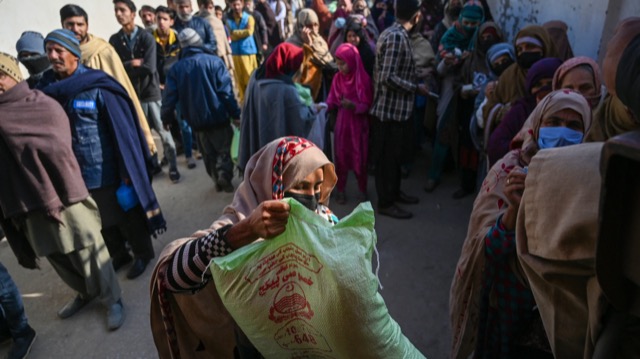Amid the shortage of wheat, the banks in Pakistan remain hesitant in opening letters of credit (LCs) for the import of necessities, posing threat to the food supply, reported The News International.
The inability of banks to open LCs despite the State Bank of Pakistan’s (SBP) directives about import facilitation, poses a threat to the supply of food, as well as, could escalate price pressures and create a shortage of medications.
Thousands of shipping containers are stuck at the Karachi Port after offloading due to the banks’ reluctance to guarantee foreign exchange payments. Perishable and non-perishable foodstuffs and medical supplies are among the cargoes, reported The News International.
Pakistan is facing its worst-ever flour crisis with parts of the country reporting a shortage of wheat and stampedes reported from several areas in Khyber Pakhtunkhwa, Sindh, and Balochistan provinces.
Prices of wheat and flour have skyrocketed amid the ongoing crisis in Pakistan, The Express Tribune reported.
Flour in Karachi is being sold from Rs 140 per kilogram to Rs 160 per kilogram. In Islamabad and Peshawar, a 10 kg bag of flour is being sold at Rs 1,500 per kilogram while a 20-kilogram bag of flour is being sold at Rs 2,800. Mill owners in Punjab province have increased the price of flour to Rs 160 per kilogram.
Similarly, Khyber Pakhtunkhwa has been facing the worst-ever flour crisis as a bag of 20-kilogram flour is being sold for Rs 3100 after the government failed to control the price of the stable, The News International reported.
Last month, the SBP lifted import restrictions that went into force on January 2. “In view of the orders issued last month, the SBP has given banks the power to facilitate imports. Thus, banks are not restricted from opening LCs for the importation of essentials such as food and medicine. Banks are free to make their own decisions on the opening of LCs,” said SBP spokesman Abid Qamar.
According to the SBP, banks should give preference to or facilitate imports that fit into the category of necessary imports, such as those related to food (wheat, edible oil, etc.) and pharmaceuticals (raw materials, life-saving/essential medications, and surgical devices, including stents), reported The News International.
The SBP has also directed banks to prioritize imports of energy, goods from export-oriented businesses and inputs for agriculture.
More than 6,000 containers of pulses are stuck at ports, according to Abdul Rauf Ibrahim, chairman of the Karachi Wholesale Groceries Association. Banks have reservations about paying for these imports.
“This threatens the nation’s capacity to import these basic foods. Importers have paid shipping companies USD 48 million in detention fees for these stranded containers. In the month of Ramazan, there would be a new problem in the supply and cost of pulses if these containers are not released,” Ibrahim said.
Pakistan is grappling with a balance of payments crisis brought on by high foreign debt repayments and a lack of external financing, which have hammered its foreign reserves and created chronic dollar shortages.
As of January 6, the SBP’s foreign exchange reserves plummeted to almost a nine-year low of USD 4.3 billion, posing a significant challenge for the country in terms of financing imports, reported The News International.

